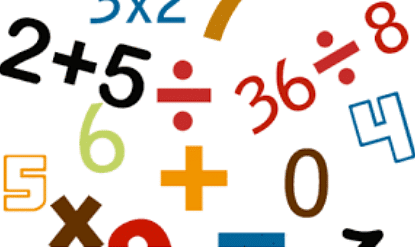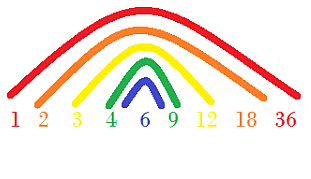Class 4 Maths - Factors and Multiples - CBSE Worksheets Solutions
 Q1: Multiple Choice Questions (MCQs)
Q1: Multiple Choice Questions (MCQs)
(i) Which of the following is NOT a factor of 20?
(a) 2
(b) 5
(c) 8
(d) 7
Ans: (d)
Factors of 20 are 1, 2, 4, 5, 10, 20. 7 is not a factor of 20.
(ii) What is the smallest prime number?
(a) 0
(b) 1
(c) 2
(d) 3
Ans: (c) 2
Prime numbers start from 2, which is the smallest prime number.
(iii) Which of the following is a prime number?
(a) 15
(b) 21
(c) 29
(d) 35
Ans: (c)
Prime numbers have only two factors, 1 and the number itself. 29 is only divisible by 1 and 29.
(iv) What are the common factors of 18 and 24?
(a) 1, 2, 3, 6
(b) 2, 4, 6, 8
(c) 3, 6, 9, 12
(d) 4, 8, 12, 16
Ans: (a)
Factors of 18: 1, 2, 3, 6, 9, 18. Factors of 24: 1, 2, 3, 4, 6, 8, 12, 24. Common factors are 1, 2, 3, 6.
(v) Which of the following numbers is NOT a multiple of 9?
(a) 45
(b) 63
(c) 72
(d) 82
Ans: (d)
A multiple of 9 must be divisible by 9. 82 is not divisible by 9.
Q2: True or False
(i) 36 is a multiple of 9.
Ans: True
The first ten multiples of 9 are 9, 18, 27, 36, 45, 54, 63, 72, 81, 90.
(ii) 6 is the least non-zero multiple of 6.
Ans: True
In this question, the number is 6.
We know that, multiples of 6 are 6, 12, 18, 24, 30, 36, 42, 48, 54 and so on.
By observing above multiples, it is clear that, 6 is the least non-zero multiple of 6.
So, the least non-zero multiple of 6 is 6.
(iii) 1 is the multiple of 5.
Ans: True
Yes, every whole number is a multiple of 1.

Q3: Fill in the Blanks
(i) The first six multiples of 4 are ____, ____, ____, ____, ____, and ____.
Ans: 4, 8, 12, 16, 20, 24
Multiples of 4 obtained by multiplying 4 by counting numbers 1 through 6.
(ii) A number divisible by both 3 and 5 is a multiple of ____.
Ans: 15
3 × 5 = 15, a number divisible by both 3 and 5.
(iii) The number 17 is ____ because it has only two factors.
Ans: prime
Prime numbers have only two factors: 1 and the number itself.
(iv) The smallest whole number is ____.
Ans: 0
Whole numbers start from 0.
(v) The common factors of 12 and 18 are ____, ____, and ____.
Ans: 1, 2, 3, 6
Factors of 12: 1, 2, 3, 4, 6, 12. Factors of 18: 1, 2, 3, 6, 9, 18. Common factors are 1, 2, 3, 6.
Q4: Answer the following questions
(i) Encircle the prime numbers: 14, 19, 37, 45, 61 , 69, 77, 81, 99.
Ans: 19, 37, 61. These are prime numbers. A prime number is a natural number greater than 1 that is not a product of two smaller natural numbers.
(ii) Write the prime factorization of 96.
Ans: The prime factors of 96 thus obtained are written as 96 = 2 × 2 × 2 × 2 × 2 × 3 = 2^5 × 3^1, where 2 and 3 are the prime numbers.
(iii) Write the smallest number which when added to an even number makes the sum an odd number.
Ans: The smallest number which when added to an even number makes it an odd number is 1. An even number is always divisible by 2.
(iv) Encircle the composite numbers: 21, 31, 39, 49, 51, 53, 63, 91, 97.
Ans: A number that is divisible by a number other than 1 and the number itself, is called a composite number. The composite numbers in the above series are 21, 39, 49, 51, 63, 91.
|
33 videos|168 docs|30 tests
|
FAQs on Class 4 Maths - Factors and Multiples - CBSE Worksheets Solutions
| 1. What are factors and how do I find them for a number? |  |
| 2. What are multiples and how can I list them for a given number? |  |
| 3. How do factors and multiples differ from each other? |  |
| 4. Can a number have more than two factors? |  |
| 5. How do I determine if a number is prime or composite using factors? |  |

















